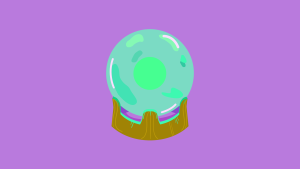Over the course of the past two or three weeks, I’ve received email from several people who had an unusual problem. They were getting loads of traffic to their site.
I’ll bet you’re thinking, "Gee, now there’s a problem I’d like to have".
The dilemma wasn’t the abundance of traffic, it was the lack of sales this traffic "should" have produced.
A zillion hits can send you to the chiropractor with back problems from having to walk around with that big ol’ head, but what good has it done your site if no sales result from all those hits?
So, how do you convert click-thrus to customers? That’s the $64,000 question.
I’ve identified a few things that I believe will help you in that area.
Form Follows Function; Not The Other Way Around
Before you begin designing your site, you need a concrete plan for what you want to accomplish with it. Seems self-explanatory, doesn’t it? The next time you’re surfing, though, see how many sites have loads of cool graphics and animations center stage and their product or ordering information stuck in some obscure place so as not to ruin the "look" of the site.
Don’t get this one backward; your site design should harmonize with, but be secondary to, the actual purpose for your site’s existence, not the other way around. For most of us, the goal is to design a site that will generate business, not outbursts of "Ooh! look at the pretty picture!".
This, in my mind, is one of the most important steps of the design process: Develop a "mission statement" for your site and stick to it. Resist the urge to add completely superfluous items just because you "like them". I’m the world’s worst at this. I’m not good at planning and I’ll admit I have a weakness for the bright, shiny objects of the Web, but I’ve tried to train myself to act otherwise for the good of my site and you should consider doing so too.
Text Content
Another problem with many business sites is dead, flat, uninspired and uninspiring content.
The Web isn’t like other advertising media; people want information fast. You don’t have the luxury of going on and on about why your product or service is great. With print advertising, potential customers can look over the information more or less at their leisure. On the Web, they look over it at that moment and if you don’t catch their interest immediately, you might have lost them for good.
Make your content interesting. Make it interactive if possible and make it concise. Don’t expect your visitors to read a 2500 word pitch for your product/service; I’d wager about 99.9999% won’t (and that’s being conservative).
Avoid the Scent of Scam
"Make $5500 in the next 2 hours, if you’re not busy." "Become a millionaire in your spare time."
"Since dinosaurs roamed the Earth, there has never been a better product than [fill in the blank]!!! In fact, in a rare occurrence of species premonition, dinosaurs actually foresaw our product and became extinct due to overwhelming despair brought about by the realization they would never be able to use it. But don’t cry for the dinosaurs, their loss is your gain!!!"
<sniff, sniff> Hey, do you smell that? Something reeks of a scam.
You guys all have great products and services I’m sure. There’s not a thing in the world wrong with being proud of them, but avoid the outlandish claims, the bold text, the exclamation marks, the blinking thingies, and the money graphics. I really believe people’s rip-off meter pegs out at any of these.
Provide Contact Information
Show visitors you’re a "real" person. Provide several ways for them to get in touch with you and respond to their email.
Your contact information should be very visible on (at a *minimum*) the front page. Explain to visitors how, where, and when they can get in touch with you. Help dispel that nameless, faceless image that we site owners are sometimes subjected to.
In my opinion, this fosters trust and trust engenders potential sales.
Display Your Products
Another "duh" category you say? Au contraire. Some sites I’ve seen have the products displayed poorly, or not at all.
Provide your visitors with pictures (if possible), prices, descriptions, sizes, etc. of your products or services. Put a little effort into enhancing the presentation of those products or services so they are shown in the best possible light.
Make It Easy to Order
Last, but certainly not least; in fact, probably *the* most important factor in determining whether or not your visitors turn into customers is the fact that you need to make it as easy as possible for the customer to order from you.
This ties in with "form follows function" above. If you’re trying to sell something, you want to make it easy to buy, don’t you?
Make your site easy to navigate; especially the order/shopping areas. Provide clear, easy to follow instructions on ordering and (I think) you should consider accepting credit cards on your site, if at all possible.
Don’t make your visitors jump through a lot of hoops to place an order. Spend some time thinking about how you could make your site the best it can be for your visitors; they’ll love you for it.
Hopefully this article has given you at least a little insight into how to convert some of your click-thrus to customers.
Jennifer Johnson is the owner of onMessage Graphic Design and specializes in logo design, business card design, and letterhead design for small business owners. Online portfolio of 480+ logos.


